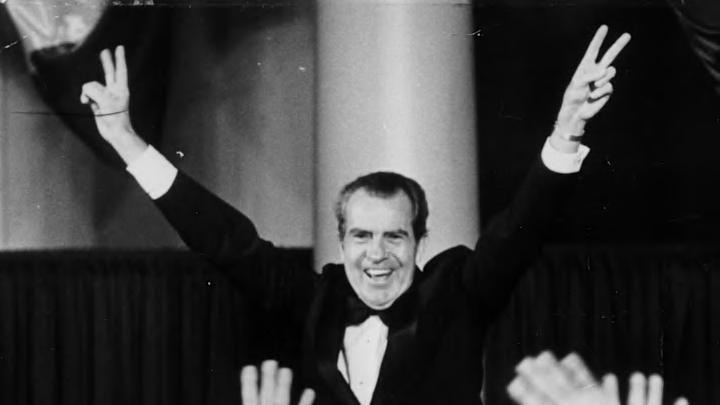Typically, a presidential inauguration ceremony features a number of past commanders-in-chief—including the most recent to have held the office. While skipping the incoming president’s inauguration is a break from tradition, it isn’t unprecedented: A handful of presidents in U.S. history have declined to attend the swearing-in ceremony of their replacement. Here are the six times living presidents were missing from their successors’ inaugurations.
John Adams

The inauguration of Thomas Jefferson in 1801 marked the first time the presidency transitioned to a new party. John Adams left the White House at 4 a.m. the day of the event—possibly because he didn’t want to incite inter-party violence with his presence. Jefferson also never invited him to attend the ceremony.
John Quincy Adams
John Quincy Adams took after his father when it was time for him to leave the White House in 1829. He didn’t invite President-elect Andrew Jackson to the White House, and his successor didn’t ask him to come to the swearing-in ceremony.
Martin Van Buren

According to a March 1841 newspaper, Martin Van Buren didn’t show up to the inauguration of his successor, William Henry Harrison. "Mr. Van Buren was not present on the occasion," the paper noted. Van Buren’s vice president, Richard Mentor Johnson, did attend, according to the paper.
Andrew Johnson
On the way to his inauguration in 1869, Ulysses S. Grant refused to ride in the carriage with outgoing president Andrew Johnson. Johnson returned the snub by spending the ceremony finishing up work in the White House. The two men became rivals after Johnson attempted to remove Secretary of War Edwin Stanton and replace him with Grant. When Congress overrode this decision using the Tenure of Office Act of 1867, Grant resigned from the position and eventually supported Johnson’s impeachment, which was set in motion after Johnson attempted to replace Stanton yet again. (Johnson was ultimately acquitted.)
Richard Nixon

Richard Nixon became the first U.S. president to resign on August 9, 1974. When his vice president Gerald Ford was sworn in as president in the East Room of the White House, Nixon had already vacated the premises.
Donald Trump
On January 8, 2021, Donald Trump announced that he would not attend Joe Biden’s inauguration on January 20 (he instead decamped the White House for Florida). Biden, however, is planning to attend Trump’s 2025 inauguration.
Read More About U.S. Presidents:
A version of this story originally ran in 2021; it has been updated for 2025.
